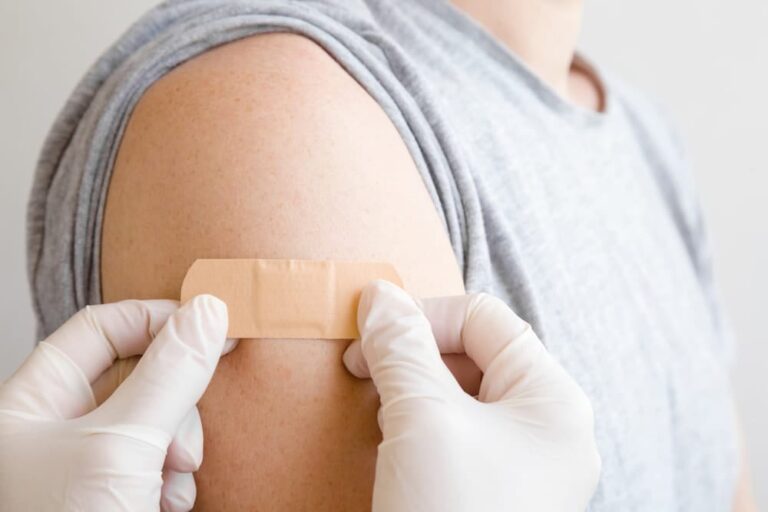If sexually transmitted diseases are not treated properly, they can be dangerous and in some cases even fatal. And for this reason, it is always a good idea to take proper precautions and practice safe sex with current or future sexual partners. Fortunately, many STDs are treatable and in some cases even curable, and scientists are continually making groundbreaking advances on these fronts in the hope that STDs will one day be completely eradicated. While we’re not quite there yet, three common diseases can be prevented through STD vaccines (and hopefully more diseases will become available in the coming years). Currently, vaccinations are available to prevent hepatitis A, hepatitis B and HPV.
Hepatitis A
Hepatitis A is a viral liver disease caused by the ingestion of infected feces through unwashed food or a contaminated water supply (although oral and anal sex acts are also known to cause the spread of the virus). Symptoms may include some or all of the following: fever, physical discomfort, loss of appetite, diarrhea, nausea, dark-colored urine, and jaundice. In the most severe cases, hepatitis A can cause liver failure and even death, although these cases are rare. Typically, an infected individual will exhibit symptoms for several weeks and develop lifelong immunity once the virus has run its course. Hepatitis A is most common in countries with historically poor sanitary conditions and hygiene standards. Washing food thoroughly and washing your hands with soap and water after using the toilet is also critical to preventing the spread of the disease.
The hepatitis A vaccine was first introduced in 1995 as a preventive measure for hepatitis A in children. In infants, the vaccine is given around the child’s first birthday, with a booster injection about six months later. The vaccine is available to anyone who chooses to receive it, although it is suggested that the following groups get vaccinated: anyone traveling abroad to areas where the disease is widespread, men who have sex with men, anyone with liver disease , or all street drug users. NOTE: The hepatitis A vaccine cannot cause the recipient to contract the disease as the vaccine does not contain the live virus.
Hepatitis B
Hepatitis B is a liver infection caused by the Hepatitis B virus (HBV), which is contracted through the exchange of bodily fluids (blood, semen, vaginal fluid, saliva) and can be transmitted sexually or by sharing objects containing the virus can convey from someone. person to another person (syringes, tattoo or piercing needles, razors, toothbrushes, etc.). It cannot be passed on through casual contact, such as a handshake or hug, or from mother to baby through breastfeeding.
The hepatitis B virus first became commercially available in 1982 and has since significantly reduced the number of chronic infections in children worldwide. The Centers for Disease Control recommends that all children get the vaccination, as well as all adults who are HIV+ or at risk of contracting the disease (injection drug users and men who have sex with men are at increased risk). NOTE: Hepatitis B vaccines are synthetic and do not contain traces of the virus, so it is impossible to contract the disease from the vaccine alone.
Because the disease can easily be transmitted from mother to baby during birth, it is recommended that pregnant women get tested well before the due date. With advance notice, doctors can prepare to treat the newborn right away to minimize the child’s risk of contracting the disease.
There is currently no cure for hepatitis B, but most immune systems can rid the body of the virus naturally. Only about half of people who contract the disease show symptoms at all, and those who do may see symptoms similar to a cold or flu. Symptoms usually go away after a few days or weeks with nothing but rest, a healthy diet, and fluids.
HPV
HPV is the most common sexually transmitted disease ever recorded. HPV (short for ‘human papillomavirus’) is a viral infection that causes skin or mucous membrane growths on the skin. Although most infections are harmless and go away on their own, some can potentially lead to genital warts or even cervical cancer in women. . The infection is usually transmitted sexually or through skin-to-skin contact. Most people who contract the virus show no symptoms and go away on their own. But in cases where this is not the case, abnormal cells can be detected and properly treated before they develop into any form of cancer. For this reason, it is always a good idea to get tested and consult your doctor regularly.
Although there is no cure for the infection, a vaccine can prevent you from ever contracting it. The HPV vaccine, which has been around since 2006, is available to everyone ages 9 to 45 and it is recommended that children get the vaccine early, even before they become sexually active. For people aged 15 and over, the vaccine is given in three separate shots over the course of six months. For children aged 9 to 14 years, the vaccine is given in two injections, six months apart. This vaccine can cost up to $250 per dose, but most insurance companies will cover some or all of the reimbursement. We recommend that you consult your doctor to determine if receiving the vaccine will benefit you.

